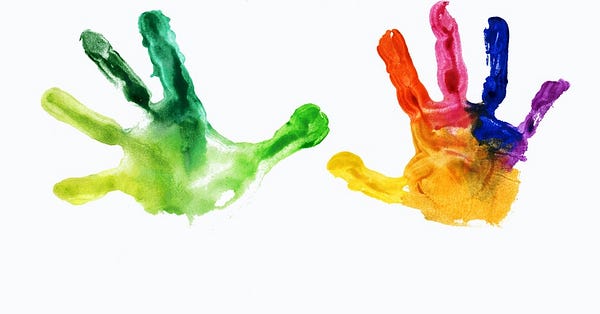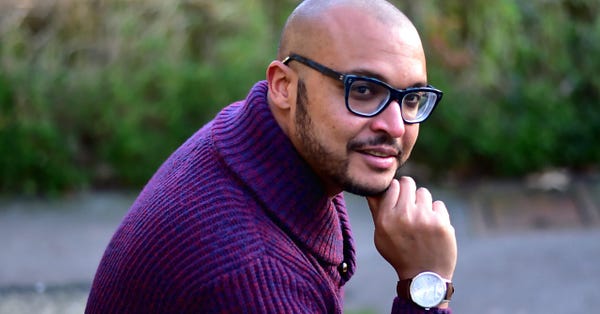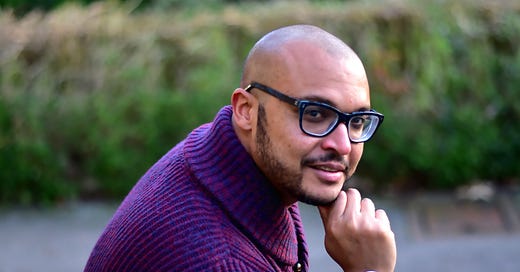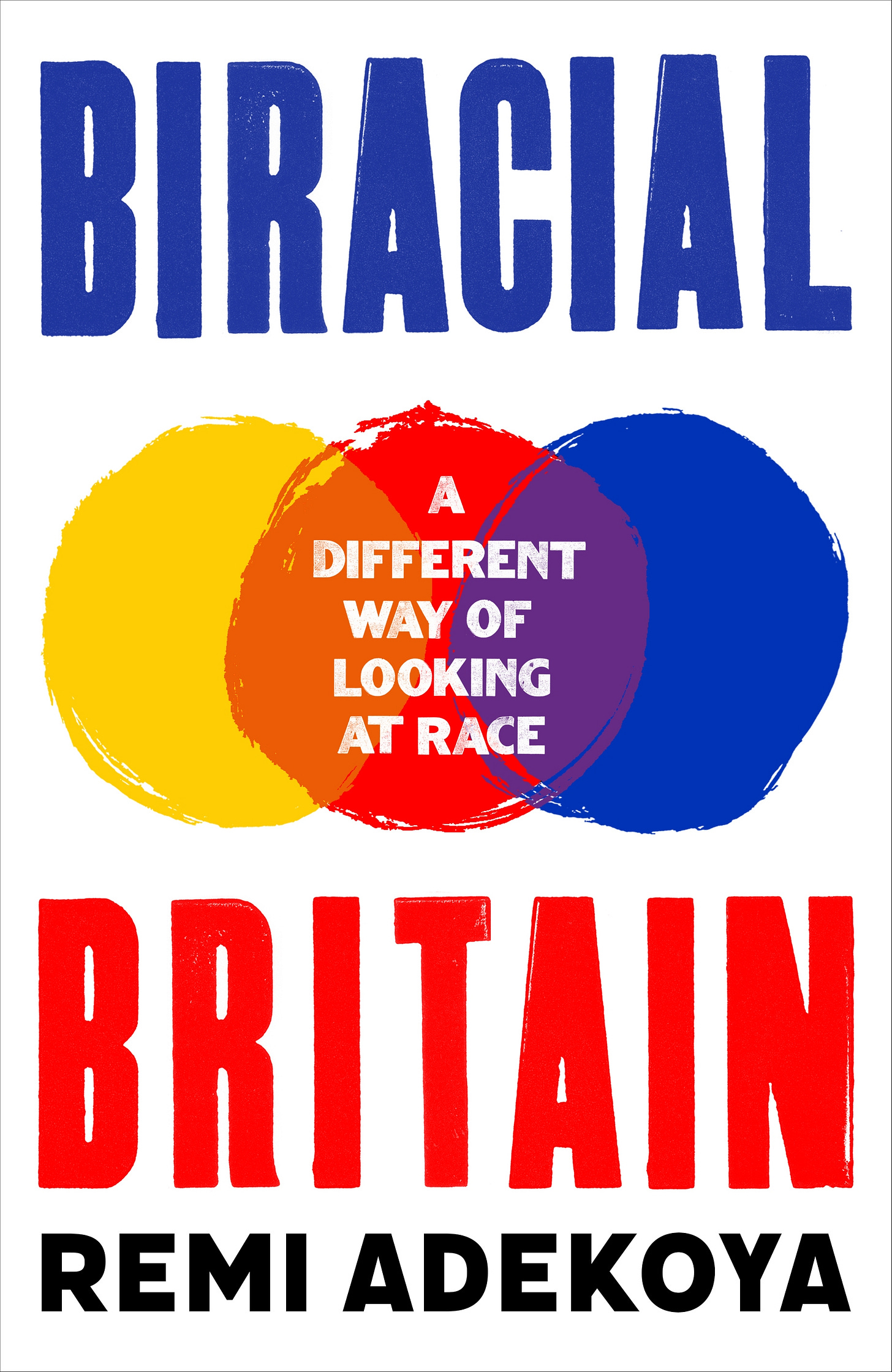Remi Adekoya: “Mixed people have long been defensive; it’s time to be assertive”
The author of Biracial Britain on how the stifled mixed identity is changing
Hi, welcome back to Mixed Messages! This week I’m speaking to Remi Adekoya, who is of Nigerian and Polish heritage. Remi is the author of Biracial Britain: A Different Way of Looking at Race, which seeks to explore the unique mixed identity in an emotional and nuanced way. Whereas this newsletter speaks to notable voices, Remi speaks to those outside of the public eye, so I was keen to hear his insights.
How would you define your ethnicity?
I was born to an Polish mother and Nigerian father. My formative years were defined by growing up mixed-race in virtually all-Black environments (Lagos, Nigeria), which is a different experience to growing up mixed-race in a Western, white-majority environment.
What words have you used to describe yourself?
In Nigeria we used ‘half-caste’, which was a neutral term. It was only when my mum explained that it originated from the old Indian caste system that I saw it could be derogatory. But I was never able to get worked up about that term because Nigerians don’t use it with those negative connotations. This shows the power of words, interpretation and the intentions behind them.
In Nigeria, we have a pidgin English term ‘oyinbo’, which refers to white people. It’s not malicious, but when you’re singled out it does create a sense of difference from quite early on in life. In fact, I can’t recall a time when I didn’t feel different from people around me, which I think most mixed people can relate to. It wasn’t different in a bad way, but as a kid you just want to belong.


How were mixed people seen in Nigeria?
In that predominantly Black country, race only exists in the context of class. In societies where most people are poor, what dominates people’s thinking is how they position you economically. White people and whiteness are perceived to be rich, so when people saw me, they thought I was from a wealthy family; they instinctively assumed my dad had enough money to travel abroad and was successful enough to meet and marry a white woman. Generally, mixed people are treated better because of this. But if they found out that I was poor, nobody would treat me better just because of my light skin.
Do you think we have a narrow view of what mixed people are?
I think it’s unfair that some mixes are considered ‘cool’ and accepted, and others aren’t. Roughly half of the mixed population in the UK is mixed Black and white, with variations within that, followed by mixed Asian and white. Then about a quarter is classified as ‘mixed-other’, who essentially don’t have any white parents.
I spoke to a mixed Jamaican-Indian for my book, who grew up in Dudley in the Midlands. He was told that he “didn’t make sense” when he explained his mix and was met with disgust. One of the things I try to rectify in my book is expanding the horizons of what mixes we understand.
Why was now the time to write Biracial Britain?
Many books on race tend to be top-down narratives, with abstract, big picture arguments, written by well-known people, usually living in London. But for the individual, the small picture is the big picture. These grand debates obscure the individual experiences of millions of people. I wanted to write about regular mixed people who navigate being mixed outside of the public eye and who don’t have to self-censor themselves for fear of how it will affect their public image.
What do you want readers to take from the book?
I wanted people to be able to read stories that are similar to their own personal experiences, and take inspiration for how to handle certain situations, even if you’re 15 and reading about a 65-year-old. There’s so much for us to learn from people who are more experienced than us.
I’d like people to come away feeling emboldened to assert themselves and their identities in the way that makes them feel comfortable and not in the way they think society, or the particular mono racial group around them, expects of them.


Do you think that the mixed identity is changing already?
It’s difficult, because we’re living in a racially polarised time where people are expected to ‘choose a side’. If you’re visibly mixed Black and white, you’re never going to be seen by white people as one of them. That means the Black community is your only option, and you might feel pressure to act in a certain way to be included and not offend them. So the position of mixed people has been stifled for fear of being criticised from either side. It’s instinctual to want to belong to a tribe.
For a long time, the mixed-race identity was defensive, almost apologetic at times. There were so few of us in number that we had no power to assert our own identities. Now, there’s millions of us, and I think a lot of mixed people feel more confident.
If you could sum up your mixed experience in one word, what word would you choose?
Difference. Not always negative or depressing, but it’s always there.
Biracial Britain: A Different Way of Looking at Race by Remi Adekoya is published on 4th February in hardback by Constable, £18.99. Next week, I’ll be talking to Banseka Kayembe, Director of Naked Politics and freelance writer. Subscribe to get Mixed Messages in your inbox next Monday!
Enjoy Mixed Messages? Consider supporting me on Ko-Fi so I can continue to grow this newsletter!
Mixed Messages is a weekly exploration of the mixed-race experience, from me, Isabella Silvers. My mom is Punjabi Indian (by way of East Africa) and my dad is White British, but finding my place between these two cultures hasn’t always been easy. That’s why I started Mixed Messages, where each week I’ll speak to a prominent mixed voice to delve into what it really feels like to be mixed.





